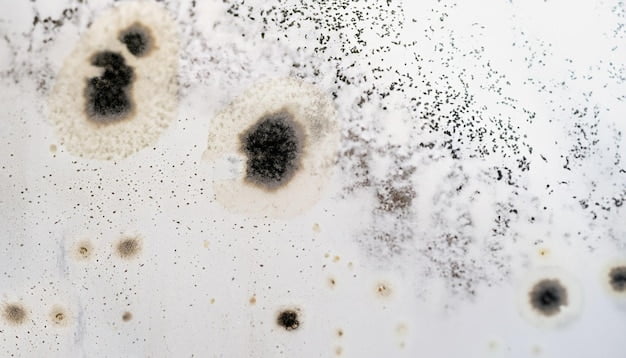
Contents
Introduction
Pregnancy is a beautiful journey filled with excitement and anticipation, but it also comes with responsibilities, including ensuring a safe and healthy environment for both the mother and the developing baby. One potential threat to this safety is black mold. In this article, we will explore the impact of black mold on pregnancy, its potential risks, and how to deal with this issue effectively.
Understanding Black Mold
What is Black Mold?
Black mold, scientifically known as Stachybotrys chartarum, is a type of mold known for its dark greenish-black appearance. It thrives in damp and humid conditions and is often found in areas with water damage, such as leaky roofs, basements, and bathrooms.
How Does Black Mold Spread?
Black mold spreads through the release of tiny spores into the air. When these spores land on damp surfaces, they can grow and multiply, leading to the formation of mold colonies.
Risks of Black Mold During Pregnancy
Respiratory Issues
Exposure to black mold during pregnancy can lead to respiratory problems for both the mother and the unborn child. Inhaling mold spores can cause coughing, wheezing, and nasal congestion.
Allergic Reactions
Pregnant women exposed to black mold may develop allergic reactions such as skin rashes, itchy eyes, and sneezing.
Complications for the Baby
Black mold exposure has been linked to adverse outcomes for the baby, including low birth weight and preterm birth. In severe cases, it may even lead to birth defects.
Identifying Black Mold in Your Home
Visual Inspection
Inspect your home for any visible signs of mold growth. Look for dark, slimy patches on walls, ceilings, or in damp areas.
Musty Odor
Black mold often emits a musty, earthy odor. If you notice such smells, investigate the source immediately.
Professional Inspection
Consider hiring a professional mold inspector to assess your home if you suspect black mold but can’t find visible signs.
Dealing with Black Mold Safely
Avoid DIY Remediation
Pregnant women should not attempt to remove black mold themselves, as it can release more spores into the air. Instead, hire a professional mold remediation service.
Ventilation
Improve ventilation in your home by using exhaust fans and opening windows to reduce humidity.
Fix Leaks
Address any water leaks or seepage promptly to prevent mold growth in the first place.
Health and Safety Precautions
Consult a Doctor
If you suspect mold exposure or experience any symptoms, consult your healthcare provider. They can provide guidance on potential risks and necessary precautions.
Stay Elsewhere
If extensive mold infestation is found in your home, consider staying elsewhere until the issue is resolved to protect your health and your baby’s.
Follow Professional Advice
Listen to the recommendations of mold remediation professionals and follow their advice carefully.
Conclusion
Black mold can pose risks during pregnancy, but with vigilance and the right precautions, you can ensure a safe and healthy environment for you and your baby. Don’t hesitate to seek professional help if you suspect black mold in your home.
FAQs
1. Can black mold cause miscarriage?
There is no conclusive evidence linking black mold directly to miscarriage, but it can lead to other complications during pregnancy.
2. How fast does black mold grow?
Black mold can begin to grow within 24-48 hours in the right conditions.
3. Is it safe to clean black mold while pregnant?
It is not recommended for pregnant women to clean black mold. Leave it to professionals to minimize risks.
4. Can I prevent black mold during pregnancy?
You can prevent black mold by keeping your home dry, well-ventilated, and addressing leaks promptly.
5. What should I do if I suspect black mold in my home?
Contact a professional mold remediation service and consult your healthcare provider for guidance.




